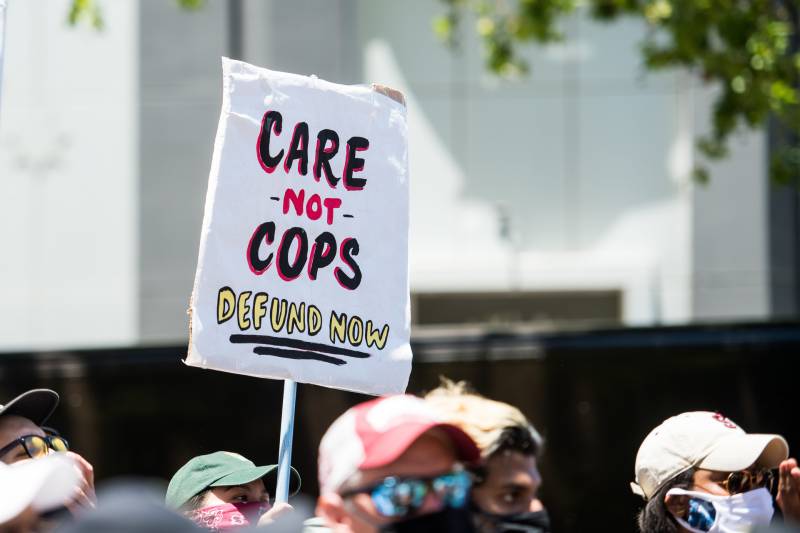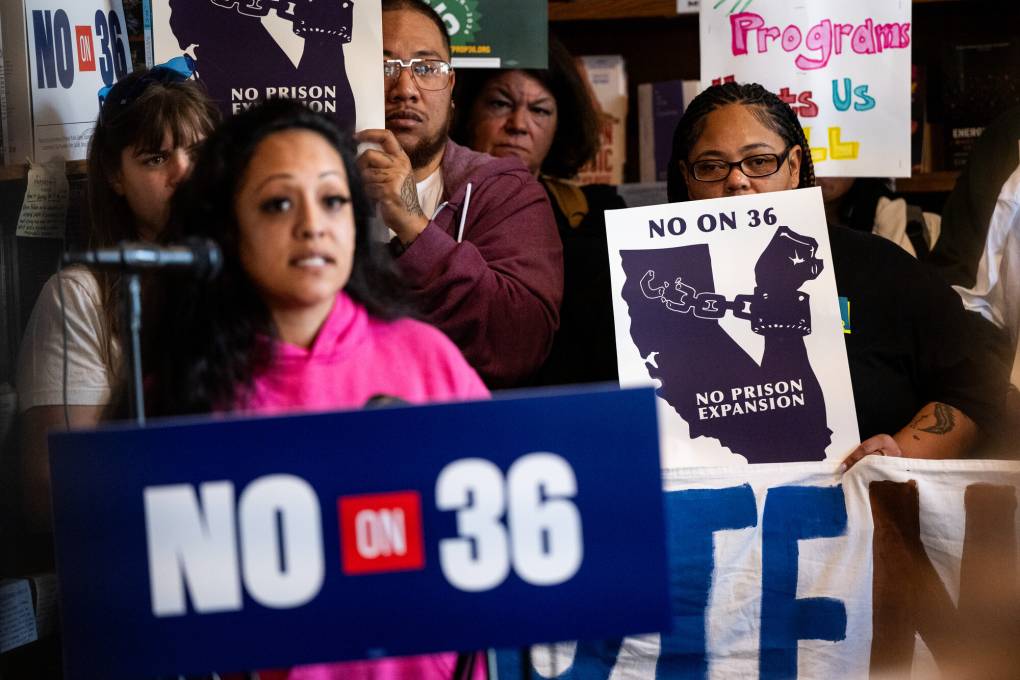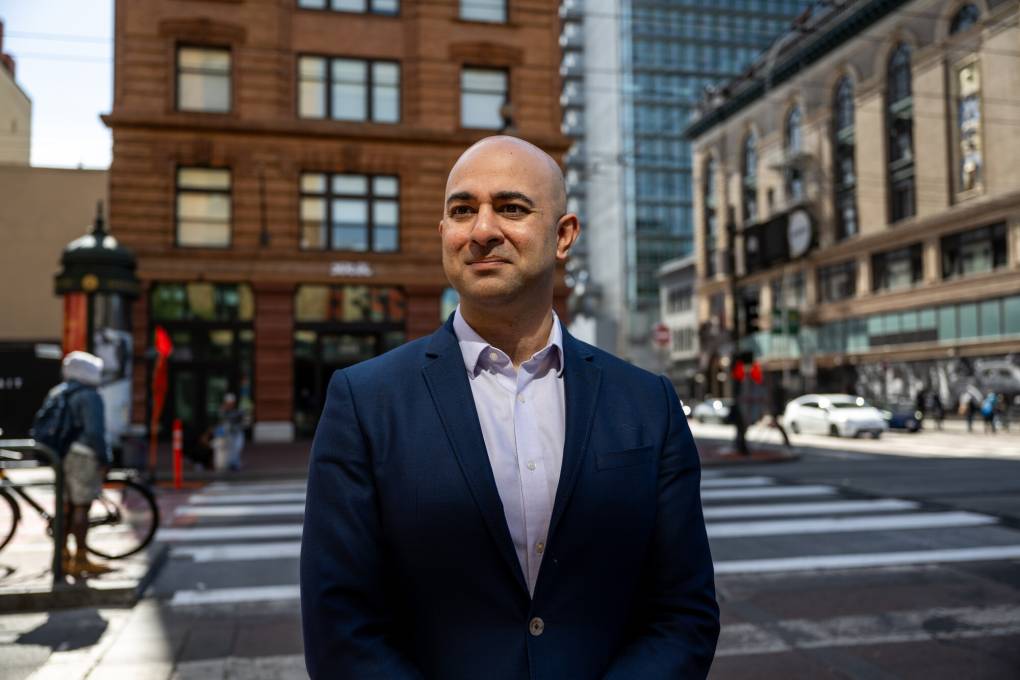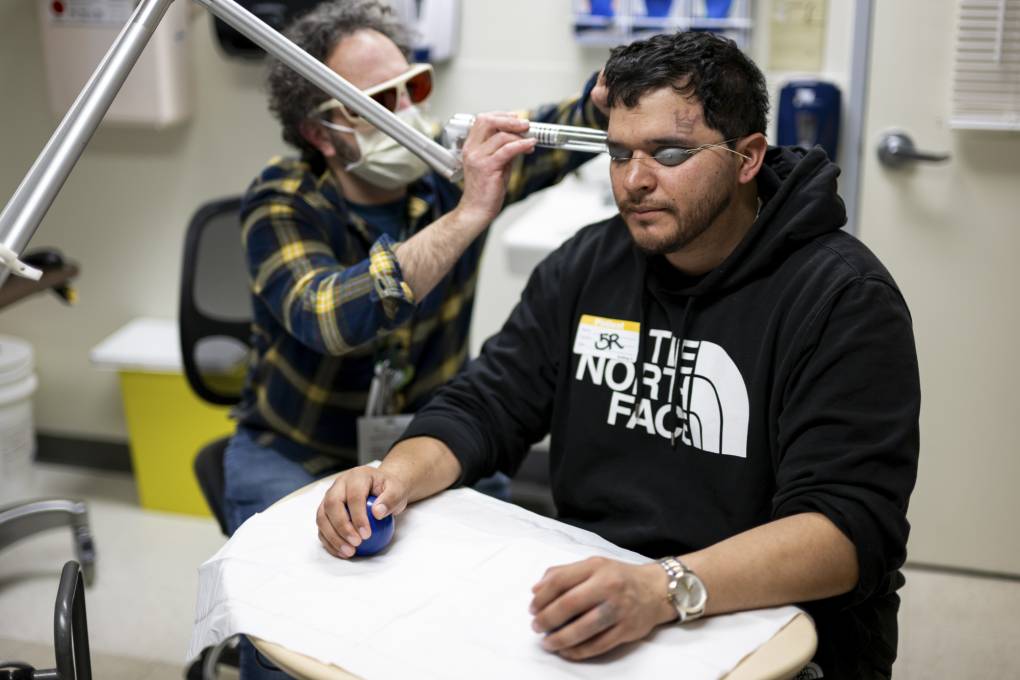He also cautioned that calls to defund police and transform health care eerily reflect the 1950s movement to close down oppressive state hospitals that violated human rights and involuntarily held some patients indefinitely. Gong says defunding those institutions was co-opted by politicians during a period of fiscal crisis, and that when the money wasn’t reinvested in alternatives, city streets and jails began to be filled by people with psychiatric disabilities, which resulted in public backlash and calls to "bring back the asylum."
“We need to prepare for problems with new systems we build, especially in a bad economy like this, and we have to have real answers if people do demand a return to harsh enforcement," Gong said.
It seems that people are looking for real answers and solutions: More than 4,000 people registered for the discussion via Zoom, and the recording of the panel has since been viewed thousands of times.
In Oakland, the city council has responded to calls to defund the police by passing a revised city budget in June, which allocates $1.85 million to create a Mobile Assistance Community Responders of Oakland, or MACRO, which is intended to remove police from some 911 calls related to mental health.
But APTP has criticized the program’s white leadership as out of touch, and said MACRO was developed without adequate community input. Boykin says practical community solutions are what will make a difference in the future of mental healthcare, and that those solutions start with small steps.
“Talk to your neighbors, say hi, get to know them. One of our best tools is relationships," Boykin said. "If we begin to build those relationships across the fence eventually we will not need outside intervention."
Resources
- The Institute for the Development of Human Arts is a mental health advocacy organization that advances holistic, transformative mental health practices rooted in the lived experience of people with mental illness. Their training and events value lived experience as highly as professional training and seek to advance alternatives to policing, criminal justice, and mental health care.
- Mental Health First Oakland is a new model for non-police response to mental health crisis. Their goal is to provide telephone and mobile assistance to crisis including psychiatric emergencies, substance use support, and domestic violence. They can be reached Friday and Saturday Nights from 8pm-8am at (510) 999-9MH1.
- Transformative Mutual Aid Practices is a guide for building personal wellness strategies, communication tools, and resilience practices to help individuals navigate challenging times and build support within their communities.
- Here's KQED's guide to finding affordable, culturally competent therapy in the Bay Area.



